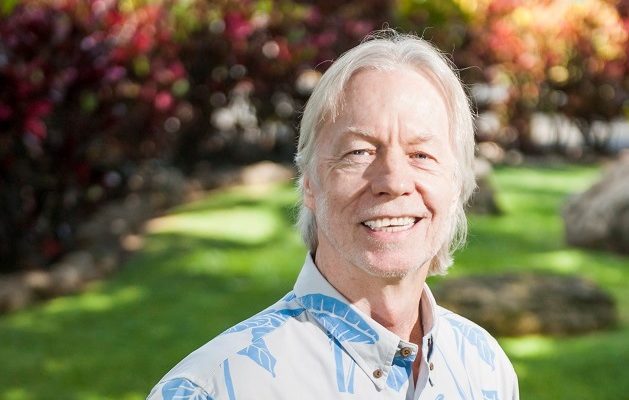
The name of our newsletter is Transitions, and it happens that I have been thinking a lot about transitions recently. And so, I want to share some of my thoughts, realizing that they may not seem very connected other than they are reflective of my pondering what transitionsmean and their impact. Let me start with one that is relatively straightforward.
Emancipation and Individuation
Hale Kipa works primarily with adolescents and young adults, many of whom are in the process of transitioning to emancipation and into adulthood. Given the challenges of adolescence in general, the transition to independence and being an adult is not easy, even on a good day. Or to put it another way, it is the process of letting go of childhood and of taking on the responsibilities of adulthood. Others may describe the process as one of “coming of age”, or even of “growing up”. However it is described, that transition is one everyone must and will make, although some will find it easier than others. And hopefully having the support of Hale Kipa staff will tend to smooth out some of the inevitable bumps in that process.
Moving
Hale Kipa is also in the process of going through a significant transition as we complete our new home for Hale Kipa on Old Fort Weaver Road in Ewa. The Hale Kipa Harry and Jeannette Weinberg Campus will provide the agency a permanent home in the Ewa community and a sense of place. But it will also provide us the opportunity to integrate administrative and program services. The transition comes from the fact that we are closing two of our administrative offices, one on Piikoi and the other in Waipahu. We will be bringing all the staff from those two sites to the new campus on Old Fort Weaver Road. In addition, we will be moving 2 shelters onto the campus.
Moving is a transition by itself. But this transition also involves a culture shift, since co-locating program and administrative staff will require us to operate and function differently. It is not as simple as the fact that we will all be in one place, for there are no established norms or organizational values for how we will work together. And that is both an exciting and a scary prospect for many of the staff who are getting ready to make that move. I am reminded of that old “saw” from years ago, “People are not resistant to change. People are resistant to being changed.”
Hale Kipa aspires to be a strength-based organization, and that should assist us in being able to take advantage of what is a wonderful new resource and a perspective that should enable us to be far more of a community partner. As Scott Seu, our Board Chair, has frequently said, “This will be a time of looking out.” And that is another transition in that we are going to be seeking to be an integral part of the Ewa community, as opposed to what has been probably truer for us over many years, which is that we are often in neighborhoods or communities but not often a part of them. And it is both my goal and our goal that we change that in our move to Ewa.
50th Anniversary
Another transition that is on the horizon is the impending celebration of our 50th Anniversary. This transition involves the idea of celebrating 50 years of having had the privilege of providing services to youth and families in Hawaii while looking forward to the next 50 years. Obviously, the complex on Old Fort Weaver Road is a part of that. But more broadly, I think it is important to integrate who we have been with who we are and who we want to be. And that will require at least “transitional thinking” as we attempt to retain and sustain all of those critical elements and qualities that have been so fundamental to who Hale Kipa has been as we move into our next 50 years.
Social Change
Somewhat obliquely, but clearly at least in my mind related, are the transitions that are happening with so many of the things that impact our youth and families. I have shared in other forums the fact that I was an activist 50 years ago in seeking to assure Civil Rights and Women’s Rights and more broadly the rights of all those who are disenfranchised, marginalized, demonized and far too often forgotten. But here we sit some 50 years later with increasing income disparity, the potential that the Supreme Court may roll back rights for the LGTBQ population, and an ongoing set of assaults on reproductive health rights. Even more critically in some ways, are the transitions taking place in a nation that has prided itself on welcoming immigrants to a nation that is going to be extremely selective and limiting about who we let come into the country. I recognize that in 2019 it may not be feasible for the United States to continue to allow everyone in as immigrants who wants to be here, particularly given the chaos that exists in the rest of the world. But whatever the cause or reason, that is a fundamental value shift. Major policy changes are happening, and I suspect in this particular domain that the changes that are happening now will in the years to come change again.
And so, there is a transition for me in my views of us: “Who is the United States? What do we believe in? What matters to us?” And probably in the most fundamental sense, “Who are we?” Peter Senge used to say when asked what an organization is, “It is the people. It is not the products they make nor the name on the brand, but it is fundamentally the people who are part of that entity who define who it is because they are the carriers of the values, guiding principles, and philosophies.” One of the challenges of the democratic process is that 51% of the voters can impose their will on the 49% who are a minority. In the absence of an agreement about who we are and what we believe, as those majorities shift, it results in transitions in policies that lead to perceived changes in values and with that comes a change in who we are, at least until the next election.
So, for me this is a time where it is harder to remain silent and where advocacy on behalf of our client population is increasingly critical. Otherwise, the reality will be that in another 5 years we will be back to where we were pre-1965 and we will then need to begin reinventing a wheel that I did not think needed a lot of reinvention.
Retirement
Hale Kipa currently has our second AmeriCorps VISTA Volunteer. And that reminds me of the fact that I began my non-profit leadership career as a VISTA Volunteer who started a human service agency in Massachusetts. But her presence also reminds me that I am looking at my own future transition out of Hale Kipa and the role of its CEO, even as it takes me back to the beginning of my career. For even though retirement conversations are still very preliminary, they foreshadow an additional transition for Hale Kipa.
We are in an exciting time of change at Hale Kipa and perhaps less exciting but still a change, in our society. And these changes make some people anxious. But I am hopeful that we will find a way to take our strength-based approach and an optimistic and positive perspective and apply it to all of these various threads. For we need to remember that change happens, and that the more things change, in some ways the more they remain the same, although they may never quite feel that way. Transitions are a critical life dynamic, for without change, life would be a static state, and for humans at least the only truly static state comes at death. So, we need to remember that we do have control, at least to some extent, over things that truly matter to us. But we will have to be willing to stand up and be counted and to engage in as positive a way as we can to make the world a better place. That is after all our fundamental hope and our mission, because the purpose of Hale Kipa is ultimately to put ourselves out of business when there is no need for the kinds of services we provide. And that will be the ultimate transition that I think we as an organization should always be striving for.




No Comments